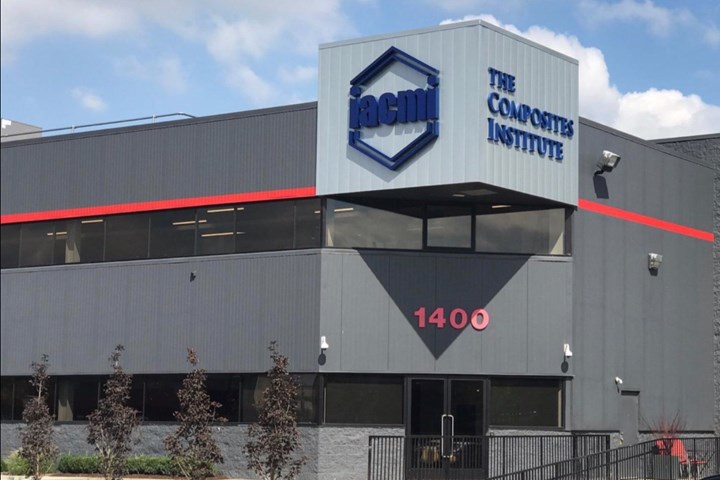DOE announces funding for projects supporting composites for vehicle applications
Composite recipients Ford and GM will develop a multi-functional cross-car beam and volume manufacturing of structural battery enclosures.

IACMI’s Scale Up Research Facility in Detroit managed and operated Michigan State University. Source | IACMI
On July 16, U.S. Secretary of Energy Dan Brouillette announced that the will fund $139 million for 55 projects across the country that will support new and innovative advanced vehicle technologies across 16 topic areas. Among the projects announced, the and EERE’s are collaborating on two projects, led by (Detriot, Mich., U.S.) and (Dearborn, Mich., U.S.), respectively, totaling $15 million aimed at lightweight and high-performance fiber-reinforced polymer composites for vehicle applications.
More specifically, Ford, in collaboration with DOE’s Oak Ridge National Laboratory (Knoxville, Tenn., U.S.) and other partners, is receiving up to $7.5 million to develop multi-functional composite structures with electronics integration for cross car beam applications. General Motors will receive the same amount for the development of fiber-reinforced composites for high-volume manufacturing of structural battery enclosures. Michigan State University’s Scale Up Research Facility is partnering with both teams. The facility was established with DOE funding under the Institute for Advanced Composites Manufacturing Innovation (IACMI).
According to the DOE, the project teams will generally conduct research in advanced batteries, electrification and manufacturing in support of DOE’s Energy Storage Grand Challenge, a comprehensive strategy to create and sustain U.S. global leadership in energy storage technology, utilization and exports announced in January 2020.
Selected projects under this funding opportunity will be managed by VTO, whose research pathways focus on fuel diversification, vehicle efficiency, energy storage, lightweight materials and new mobility technologies to improve the overall energy efficiency and affordability of the transportation system.
Other projects pursued will include advancing lithium-ion batteries using silicon-based anodes, improving efficiency for light-duty gasoline engines, medium- and heavy-duty natural gas engines, agricultural off-road vehicles and more. Visit the for a more comprehensive list.
Related Content
-
Plant tour: Airbus, Illescas, Spain
Airbus’ Illescas facility, featuring highly automated composites processes for the A350 lower wing cover and one-piece Section 19 fuselage barrels, works toward production ramp-ups and next-generation aircraft.
-
Sulapac introduces Sulapac Flow 1.7 to replace PLA, ABS and PP in FDM, FGF
Available as filament and granules for extrusion, new wood composite matches properties yet is compostable, eliminates microplastics and reduces carbon footprint.
-
Co-molding SMC with braided glass fiber demonstrates truck bed potential
Prepreg co-molding compound by IDI Composites International and A&P Technology enables new geometries and levels of strength and resiliency for automotive, mobility.






